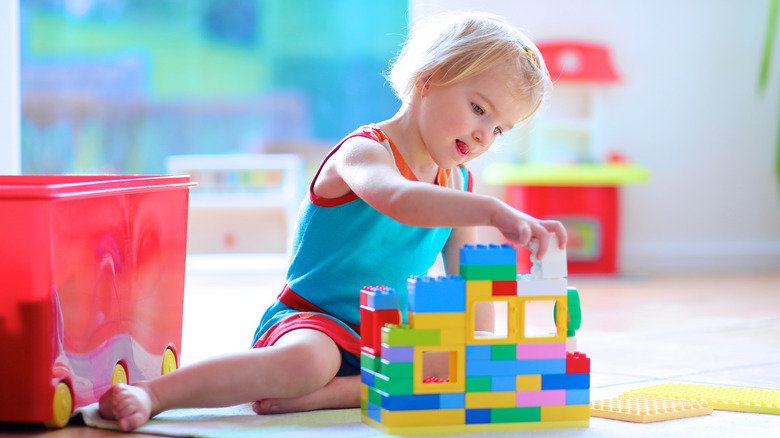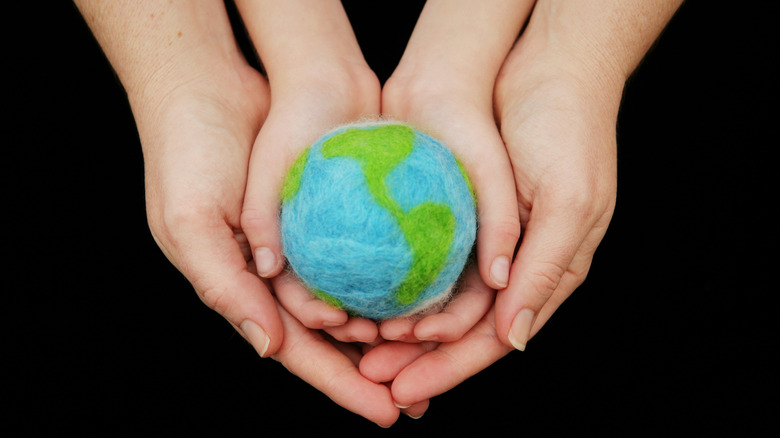Benefits Of Having Only One Kid
Growing up in a family with three other siblings, I never had any inkling of what life might be like as an only child. I often look back and wonder how my parents raised four children. With the costs of childcare and education continually on the rise, along with couples starting families later in life, it is no surprise that more parents are stopping after one child. There is no relationship quite like that of siblings, but are there hidden benefits to being an only child? And is the stereotype that an only child will turn out spoiled actually true? After doing some research, I've discovered several benefits to raising one child, making a case for single child homes. Keep reading to find out why having one child may be the best decision you can make as a parent.
The cost of childcare
It is no secret that the cost of raising children is high. New parents are burdened with the stress of saving for their child's education while also paying for childcare and the everyday necessities (hello, diapers!). Perhaps the single most important benefit of having one child is that it is less expensive. The U.S. Department of Agriculture released a report in January of 2017 estimating that the cost of raising a child through the age of 17 is approximately $233,610. This figure includes food, transportation, housing, childcare, and education, but does not account for college tuition fees and expenses. If parents are hoping to pay for a child's college tuition, then this estimate increases exponentially per child.
Greater opportunities
With the luxury of more money, parents can offer their only children more cultural and educational experiences. Dr. Toni Falbo, a researcher at the University of Texas studying only-children families, was interviewed by Vice on her findings. Regarding the availability of more opportunities, she said, "The achievement difference becomes more obvious as they [only children] get older. I think that's probably because if you have one kid then you can pay to send them to college, pay to get them into a master's program, and so on. Whereas if you have six or seven kids, you just don't have that much money, so it just leads to them not getting as much education." Beyond education, parents can also expose only children to more travel and culture. Only children may experience a more well-rounded education through these types of experiences than families with multiple children can offer.
Higher self-esteem
Parents of only children are often able to focus more attention on their one child, and the benefit is huge. Only children often have higher self-esteem than other children. Writer Lauren Sandler shared the findings of Dr. Falbo and her colleague Denise Pilot with the New York Times. She writes, "Ms. Falbo and Ms. Polit examined hundreds of studies in the 1980s and found that only children had demonstrably higher intelligence and achievement; only children have also been found to have more self-esteem." With one child, parents are not outnumbered, and the child always has the full attention of at least one parent. This type of devotion fosters an incredible sense of security for the child, allowing them a greater sense of self confidence. In an article for Parents, Cynthia Hanson reiterates this point: "Only children benefit from their parents' undivided attention and emotional support in several ways, say experts. They instill high self-esteem, foster maturity, and enable a child to develop a strong identity."
Independent creativity
Parents often struggle with the notion that their one child will be lonely without siblings around for companionship. The solitude is not necessarily a drawback, however. The child may actually become more creative and resourceful in entertaining themselves. Hanson shares this opinion in her Parents article: "Onlies are often creative and focused because they need to learn to entertain themselves. They'll build that cathedral out of blocks," Erika Karres, educational consultant and author of Make Your Kids Smarter, told the publication. Meanwhile, a mother of an 8-year-old pointed out that her son is comfortable with playing independently for hours at a time. So the idea that only children will be lonely or bored by themselves is not necessarily true. It can, in fact, lead to more creative play.
High maturity
Because they are around adults so much, only children may mature faster and develop better manners. Writer Stephanie Watson offers tips for raising an only child on WebMD, writing, "Not having sibling distractions at the dinner table gives you an opportunity to enrich her vocabulary and knowledge by involving her in more 'adult' discussions." This constant exposure to the adult world can lead to a more mature child. Also, sibling rivalry does not exist to hamper family dynamics.
Life balance
The advantages of having one child extend to the parents as well. With only one child, parents can pursue career aspirations and enjoy a lifestyle suited to their needs. With only one child to support, parents can explore other areas of life which may lead to more happiness. Kate Orson summed it up perfectly when she wrote on Parent.co that "a happy parent equals a happy child." She experienced her own sense of balance between parenting and her career with one child. She explains, "As a writer, I'd questioned whether I should have children in the first place. Would I find the time to write with multiple children to look after? A lot of my favorite writers solved that problem by having only one: Margaret Atwood, Siri Hustvedt, and Joan Didion, to name a few. They were my inspiration that writing and parenting could be combined."
Parents of one child have the opportunity to have a more well-rounded life. The childcare duties may be easier if there are two parents and only one child to look after. Parents can trade off, allowing each partner to receive free time to explore personal interests. Also, parents have more time to focus on their marriage as well.
One child is eco-friendly
Another surprising bonus to raising one child is that it is better for the environment. Journalist Wendy Thomas Russell shared her views with PBS, saying, "You're replacing two trash-accumulating, water-wasting, gas-burning individuals with one, which means your impact on the environment is drastically reduced." According to the United Nations, the current world population is 7.3 billion and that number is expected to rise steadily. It is estimated that by 2030 there will be 8.5 billion people on planet Earth. Raising one child can slow the population growth and preserve valuable resources. Russell aptly shares, "You get to be a mother without destroying Mother Earth."
Tips for parents of one child
If you decide to go one and done, Watson offers some tips on WebMD on raising only children. "Sign your child up for activities like band or soccer so he'll never lack for companionship," she writes. Other suggestions include allowing your child alone time to foster creativity, letting them pursue their own dreams (not yours), and including them in dinner conversations. Let go of the limiting stereotype that an only child is lonely and spoiled and instead embrace the idea that they, just like children with siblings, can grow up to be well-rounded individuals.








